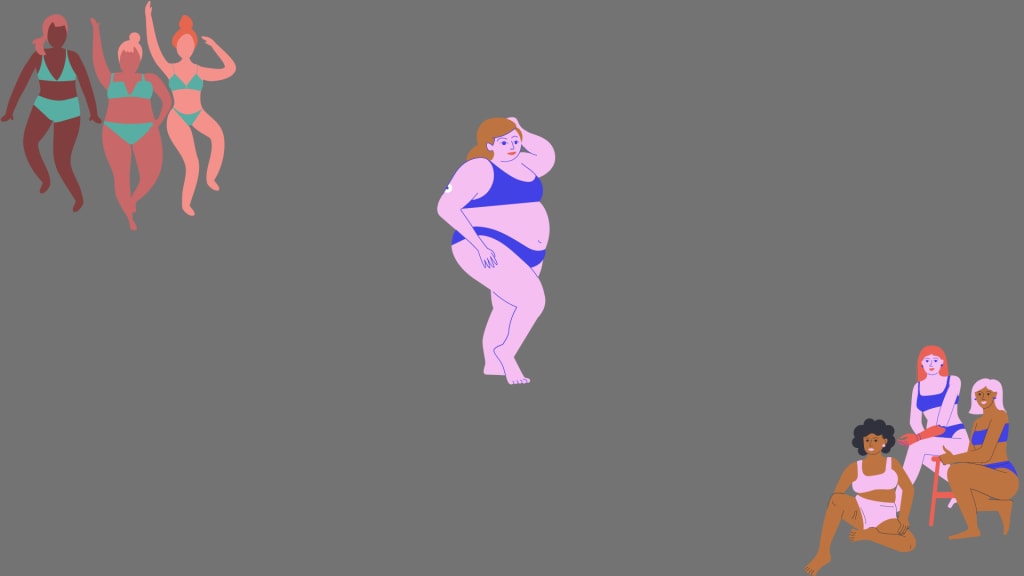
In a world consumed by unrealistic beauty standards and media-driven ideals, body positivity has emerged as a powerful movement. It aims to challenge the harmful effects of body shaming and promote self-acceptance, regardless of shape, size, or appearance. This article delves into the detrimental impact of body shaming, highlighting its effects on individuals and society as a whole. By understanding the damaging consequences of body shaming, we can work towards fostering a culture of inclusivity, acceptance, and appreciation for diverse bodies.
The Rise of Body Shaming:
In recent years, body shaming has become pervasive, fueled by social media, advertising, and societal pressures. People are constantly bombarded with unrealistic images of flawless bodies, leading to feelings of inadequacy and self-doubt. Body shaming takes various forms, including fat-shaming, skinny-shaming, and height-shaming, among others. It fosters a toxic environment that promotes judgment, comparison, and insecurity, contributing to a widespread culture of self-loathing.
Emotional and Psychological Impact:
Body shaming can have severe emotional and psychological consequences. Individuals who experience body shaming often develop low self-esteem, anxiety, depression, and body dysmorphia. Constant negative feedback and criticism about one's appearance can erode self-confidence, making it difficult to maintain a healthy body image. This negative self-perception can have far-reaching effects on mental well-being, relationships, and overall quality of life.
Self-Worth and Identity:
Body shaming undermines an individual's sense of self-worth and distorts their identity. It sends the message that one's value as a person is solely based on their physical appearance, disregarding their accomplishments, character, and unique qualities. This narrow focus on external beauty perpetuates a shallow and superficial understanding of human worth, reinforcing harmful beauty standards that exclude and marginalize individuals who do not conform.
Impact on Physical Health:
Body shaming not only affects mental health but can also have consequences for physical well-being. The stress and pressure to conform to societal expectations may lead to unhealthy behaviors such as crash dieting, excessive exercise, or the development of eating disorders. Moreover, body shaming can discourage individuals from engaging in physical activities, contributing to a sedentary lifestyle and its associated health risks. Thus, body shaming perpetuates a cycle that negatively impacts both mental and physical health.
Social and Interpersonal Ramifications:
The effects of body shaming extend beyond the individual and permeate social interactions. Society's obsession with appearance creates a hostile environment that encourages body-based discrimination and prejudice. Body shaming leads to social exclusion, bullying, and stigmatization, particularly for individuals who deviate from the narrow beauty standards. It fuels a culture of comparison, jealousy, and competition, eroding the foundations of empathy, compassion, and acceptance.
Fostering Body Positivity:
Body positivity offers an antidote to the harmful effects of body shaming. It promotes self-love, acceptance, and the celebration of all bodies, recognizing that beauty comes in diverse shapes, sizes, and forms. By embracing body positivity, individuals can reclaim their self-worth, challenge societal norms, and redefine beauty on their terms. This movement encourages the cultivation of self-care practices, positive affirmations, and support systems that empower individuals to embrace their bodies and reject harmful narratives.
Promoting a Culture of Inclusivity:
Shifting towards a culture of inclusivity requires collective effort. Educational institutions, media outlets, and advertisers play a crucial role in challenging existing beauty standards and embracing diversity. By portraying a wide range of body types and promoting positive body images, the media can reshape societal perceptions and foster acceptance. Education about body positivity, self-esteem, and mental health should be incorporated into school curricula to empower young minds with the necessary tools to combat body shaming.
Conclusion (100 words):
Body shaming perpetuates a harmful cycle of self-hate, comparison, and discrimination. Its effects are not limited to individuals but permeate society, reinforcing harmful beauty standards and undermining self-worth. By understanding the devastating consequences of body shaming, we can actively work towards building a culture of body positivity, acceptance, and inclusivity. Embracing diverse bodies, celebrating individuality, and rejecting unrealistic beauty ideals are essential steps towards fostering a healthier and more compassionate society, where everyone can embrace their bodies with love and pride.






Comments
There are no comments for this story
Be the first to respond and start the conversation.